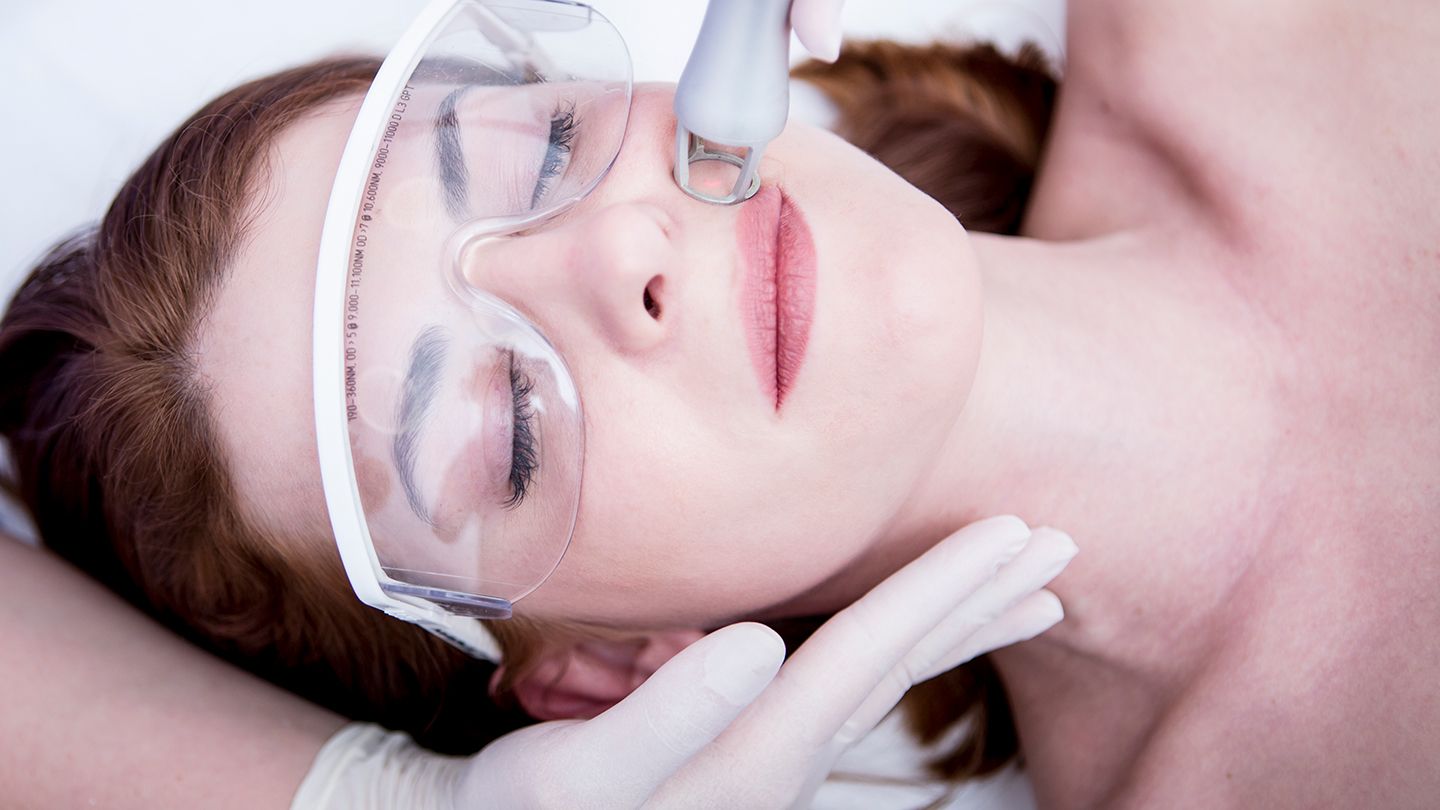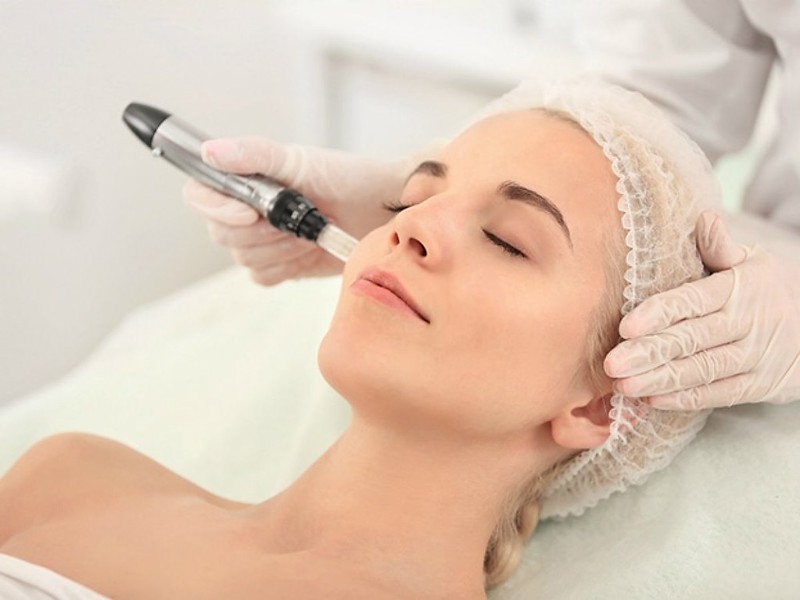 Social Media Content Packs – Stay Active Without Lifting a Finger!
Social Media Content Packs – Stay Active Without Lifting a Finger!
Caring for Your Skin Pre and Post-Laser Tattoo Removal
Written by Dynamic Clinic » Updated on: November 19th, 2024

Laser tattoo removal has become a widely sought-after procedure for individuals looking to erase unwanted ink. While the technology behind laser tattoo removal is effective and minimally invasive, proper skin care before and after the treatment is crucial to ensure optimal results. Taking care of your skin pre- and post-Laser Tattoo Removal in Dubai helps reduce the risk of complications and speeds up the healing process. If you are planning to undergo laser tattoo removal, it’s essential to know that your skin care routine will play a significant role in the success of the treatment. Caring for your skin pre- and post-laser tattoo removal will enhance the results and minimize the likelihood of adverse reactions. This guide covers essential steps to take before and after your treatment to promote healthy, clear skin.
reparing Your Skin for Laser Tattoo Removal
Before your laser tattoo removal session, ensuring that your skin is in its best possible condition is essential. Here are some key steps to follow in preparing your skin:
Avoid Sun Exposure
Sun exposure can significantly impact the effectiveness of laser tattoo removal treatments. Tanned or sunburned skin is more sensitive and at a higher risk for complications, such as pigmentation changes and scarring. In the weeks leading up to your appointment, avoid direct sun exposure and tanning beds. If you must go outside, use a broad-spectrum sunscreen with SPF 30 or higher to protect the area where the tattoo is located. Wearing protective clothing, such as hats or long sleeves, is also advisable.
Moisturize Regularly
Keeping your skin hydrated helps to improve its overall health and resilience, which can aid in the laser removal process. Regularly apply a fragrance-free, hypoallergenic moisturizer to the tattooed area in the weeks leading up to your treatment. Well-moisturized skin heals faster and is less prone to irritation during laser treatments. However, avoid applying any thick creams or lotions right before your session, as the laser needs a clean, dry surface to work effectively.
Avoid Smoking
Smoking constricts blood vessels and reduces the oxygen supply to the skin, which can slow down the healing process. If possible, quit smoking or reduce your tobacco consumption in the weeks leading up to your treatment. This will improve your skin’s ability to heal and reduce the risk of complications during the recovery process.
Stay Hydrated
Drinking plenty of water is essential for maintaining healthy skin. Staying hydrated ensures that your skin remains supple and better equipped to handle laser tattoo removal. Aim to drink at least 8 glasses of water a day, especially in the days leading up to your appointment.
Avoid Alcohol and Caffeine
Both alcohol and caffeine can dehydrate your body and skin, making it more susceptible to irritation during the laser treatment. Try to avoid these substances for at least 24-48 hours before your procedure to ensure your skin is in the best condition.
Discontinue Certain Medications and Products
Some medications and skincare products can make your skin more sensitive to laser treatments. For example, retinoids, acne medications, and certain antibiotics can increase skin sensitivity. Consult with your dermatologist or the technician performing the procedure about any medications or products you are using, and follow their recommendations on when to discontinue them.
Post-Laser Tattoo Removal Skin Care
After your laser tattoo removal session, your skin will need special care to recover and heal properly. The post-treatment period is critical for avoiding infections, minimizing scarring, and ensuring that your skin heals smoothly. Here are the key post-care steps to follow:
Keep the Treated Area Clean and Dry
Immediately after your laser tattoo removal session, the treated area may be red, swollen, and sensitive. To prevent infection, keep the area clean and dry for at least 24 hours after the treatment. Avoid submerging the area in water, including swimming pools, hot tubs, and baths, as this can increase the risk of infection. When showering, gently wash the area with mild, fragrance-free soap and pat it dry with a clean towel.
Use Cold Compresses to Reduce Swelling
It’s normal to experience swelling and redness after laser tattoo removal, especially in the first 24-48 hours. Applying cold compresses to the treated area can help reduce swelling and discomfort. Wrap ice packs or a cold cloth in a towel and apply it to the area for 10-15 minutes at a time, several times a day. Avoid applying ice directly to the skin, as this can cause frostbite or irritation.
Apply an Antibiotic Ointment
Your technician may recommend applying an over-the-counter antibiotic ointment, such as Neosporin, to the treated area to prevent infection. Apply the ointment as directed for several days after your treatment. Once the skin starts to heal, you can switch to a gentle, fragrance-free moisturizer to keep the skin hydrated.
Avoid Picking or Scratching the Skin
As your skin heals, it’s normal for scabs, blisters, or peeling to occur. While it may be tempting, avoid picking or scratching at the treated area, as this can lead to infection or scarring. Allow the skin to heal naturally, and be patient as the body works to eliminate the tattoo ink.
Avoid Sun Exposure
Just as sun exposure should be avoided before treatment, it’s equally important to protect your skin from the sun after laser tattoo removal. The treated area will be especially sensitive to UV rays, which can lead to hyperpigmentation or scarring. Wear sunscreen with an SPF of 30 or higher on the treated area, even on cloudy days. If possible, keep the area covered with clothing when outdoors.
Stay Hydrated and Eat a Balanced Diet
Proper hydration and nutrition play a key role in your body’s ability to heal. Drink plenty of water and eat a diet rich in vitamins and nutrients, especially those that promote skin health, such as vitamins A, C, and E. This will help support your skin’s natural healing process and improve your overall results.
Avoid Strenuous Activities
Strenuous physical activities can cause excessive sweating, which may irritate the treated area and increase the risk of infection. Avoid vigorous exercise, heavy lifting, and any activity that causes you to sweat heavily for at least 48 hours after your laser tattoo removal session.
Follow Your Practitioner’s Instructions
Your practitioner will provide you with detailed post-care instructions based on your skin type and the size of the tattoo being removed. Be sure to follow their recommendations carefully, and don’t hesitate to reach out to them if you experience any unusual symptoms or have questions during the healing process.
Conclusion
Caring for your skin pre- and post-laser tattoo removal is crucial for achieving the best possible results. By preparing your skin before the procedure and following proper aftercare steps, you can minimize discomfort, reduce the risk of complications, and ensure that your skin heals smoothly. With time, patience, and the right care, you’ll be on your way to clear, healthy skin and the removal of your unwanted tattoo.
Note: IndiBlogHub features both user-submitted and editorial content. We do not verify third-party contributions. Read our Disclaimer and Privacy Policyfor details.
Copyright © 2019-2025 IndiBlogHub.com. All rights reserved. Hosted on DigitalOcean for fast, reliable performance.













